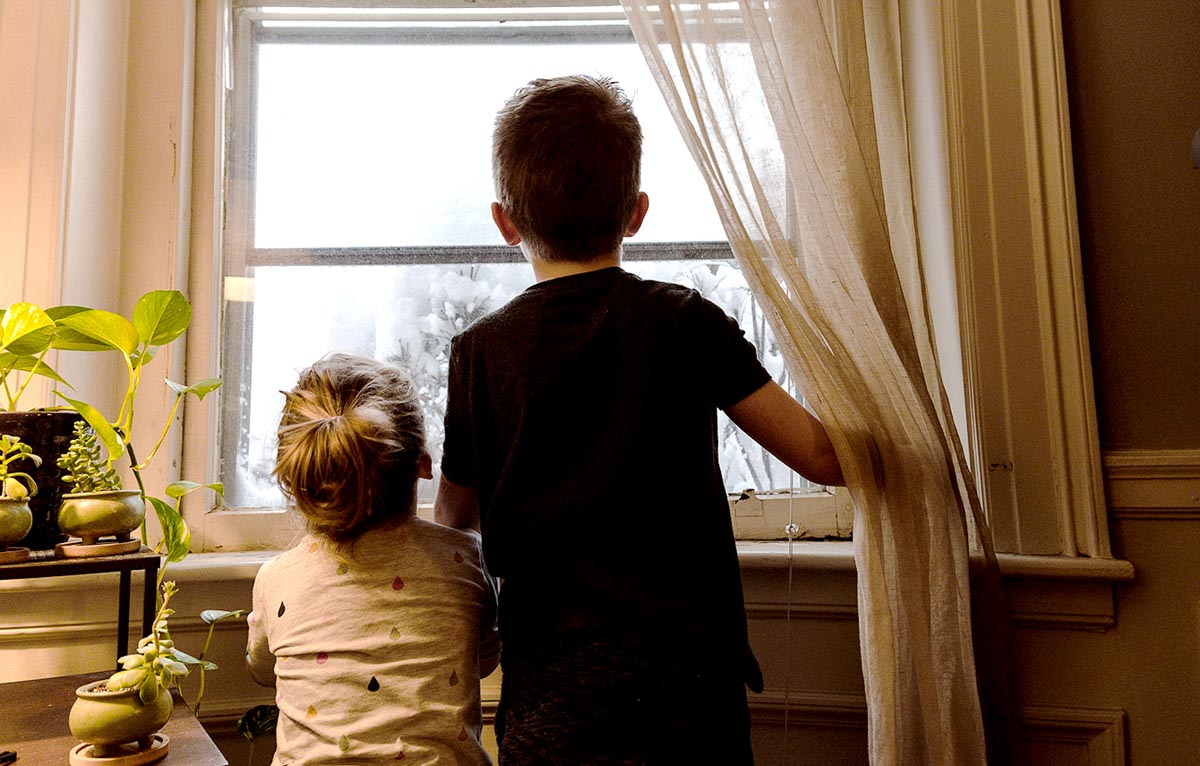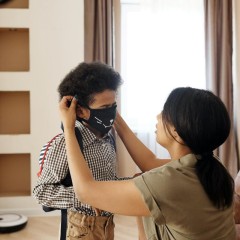Whether it is the millions of Americans filing for unemployment or tens of millions of children now at home because of an unexpected interruption to their schooling, the spread of COVID-19 has impacted the nation and created a set of urgent and diverse needs.
The Houston area has shown its resilience to economic, social and natural disaster challenges in the past, but it’s not immune to the current impacts the new coronavirus is having on the broader society. Despite the fact that we know the coronavirus is impacting Houston-area families, few data are available to help guide local and state leaders as well as nonprofit organizations as they make difficult but necessary decisions on how and where to allocate limited resources.
Recognizing this need for information, the Harris County Long-term Recovery Committee, in tandem with Harvey Home Connect and Greater Houston Community Foundation, has partnered with the Kinder Institute’s Houston Education Research Consortium to field the Gulf Coast Coronavirus (COVID-19) Community Impact Survey.
Results from the survey very clearly show the numerous impacts of the pandemic on families and households in the Houston area. Nearly nine in 10 have reported a negative impact of COVID-19 on their family and well-being, more than 7 in 10 households reported that the disease had detrimentally impacted their wages and employment, and more than 6 in 10 reported an adverse impact on their family’s education and schooling.
Many families express feelings of fear and anxiety
When looking at specific ways in which families and well-being have been impacted, more than half reported feeling like they couldn’t leave home. This was the most commonly reported impact on families and well-being, which makes sense given various city-, county- and state-level stay-at-home directives that have been issued. These orders appear to be having a positive impact on public health.
At the same time, almost as many households said they could not relax, suggesting that the family and well-being impact goes beyond the quarantining requirements. Additionally, nearly 4 in 10 households reported not having basic household goods such as soap, paper towels and toilet paper. And nearly a quarter of households reported not having enough food. Around 3 in 10 households reported feeling hopeless, which speaks directly to the strain the novel coronavirus is putting on area residents’ mental health.
The disease is taking an economic toll as well
Many Houston-area companies and businesses have been forced to adapt their business models and operations and, in some cases, close altogether as a result of the coronavirus outbreak. In terms of the economic impacts that COVID-19 has had on families, nearly 4 in 10 households reported earning less money because of the pandemic. Around 3 in 10 households reported working fewer hours, 2 in 10 said they had to take time off work without pay, and 2 in 10 households reported the loss of a job. Another 1 in 10 respondents reported that they expect to lose their job in the near future.
Many burdened by needs related to education and child care
Finally, 6 in 10 households reported COVID-19 having an adverse impact on education and schooling; however, when looking at only households with children ages 18 years and younger, that number jumps to 9 out of 10 households. Of those households, 8 in 10 reported having a child at home because of school closures. In other words, having a child at home unexpectedly adds additional strains on families in need of child care.
And, as school districts shift to distance learning, about 1 in 10 households with children reported not having Wi-Fi or internet access, and more than 2 in 10 families reported not having a device that can be used to do homework. Moreover, even as families and households struggle with the new demands placed on students during this time, there’s already concern about returning to school in the fall. More than half of households expressed fear that students will not be prepared for the next school year.
Survey will help families find resources
The survey and its data make it possible to more fully understand the impacts of COVID-19 on the Houston area. Yet the goal of this study is not simply to describe the disaster but to use the information to connect families and households with much-needed resources.
According to Elena White, director of Harvey Home Connect, the survey “allows us to have data real-time to advocate for resources for vulnerable communities” in the Houston area. White points out that the coronavirus community impact survey reflects lessons that residents in the Houston region have learned from previous storms and challenges. A key lesson, she notes, is how important it is “to assess community needs early and often to drive funding and programmatic decisions.”
As the Houston area finds itself at the beginning of dealing with COVID-19 and its economic and societal consequences, it’s not yet clear what the long-term impacts will be. What already has become clear from the survey is that the pandemic’s impacts will be far-reaching and diverse.
“As resources become available, [Harvey Home Connect] will use survey responses to share information about those resources and help the residents of our area” access and receive them, White says.
Daniel Potter is an associate director at the Houston Education Research Consortium, which is part of the Kinder Institute for Urban Research.


